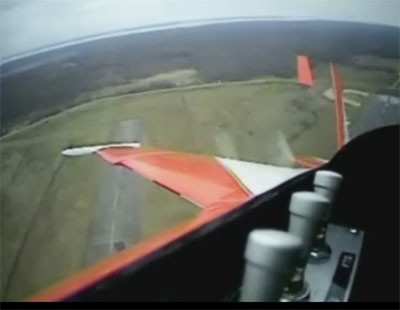Wed, May 30, 2007
Advertisement
More News
 Airborne 07.11.25: New FAA Boss, New NASA Boss (Kinda), WB57s Over TX
Airborne 07.11.25: New FAA Boss, New NASA Boss (Kinda), WB57s Over TX
Also: ANOTHER Illegal Drone, KidVenture Educational Activities, Record Launches, TSA v Shoes The Senate confirmed Bryan Bedford to become the next Administrator of the FAA, in a ne>[...]
 Airborne-Flight Training 07.10.25: ATC School, Air Race Classic, Samson School
Airborne-Flight Training 07.10.25: ATC School, Air Race Classic, Samson School
Also: Sully v Bedford, Embraer Scholarships, NORAD Intercepts 11, GAMA Thankful Middle Georgia State University will be joining the Federal Aviation Administration’s fight ag>[...]
 Airborne Affordable Flyers 07.03.25: Sonex HW, BlackShape Gabriel, PRA Fly-In 25
Airborne Affordable Flyers 07.03.25: Sonex HW, BlackShape Gabriel, PRA Fly-In 25
Also: DarkAero Update, Electric Aircraft Symposium, Updated Instructor Guide, OSH Homebuilts Celebrate The long-awaited Sonex High Wing prototype has flown... the Sonex gang tells >[...]
 Airborne-Flight Training 07.10.25: ATC School, Air Race Classic, Samson School
Airborne-Flight Training 07.10.25: ATC School, Air Race Classic, Samson School
Also: Sully v Bedford, Embraer Scholarships, NORAD Intercepts 11, GAMA Thankful Middle Georgia State University will be joining the Federal Aviation Administration’s fight ag>[...]
 Rick Kenin New Board Chair of VAI
Rick Kenin New Board Chair of VAI
30-Year USCG Veteran Aviator Focusing On Member Benefits The Vertical Aviation International Board of Directors announced its new leadership officers in April, and all began their >[...]
blog comments powered by Disqus




